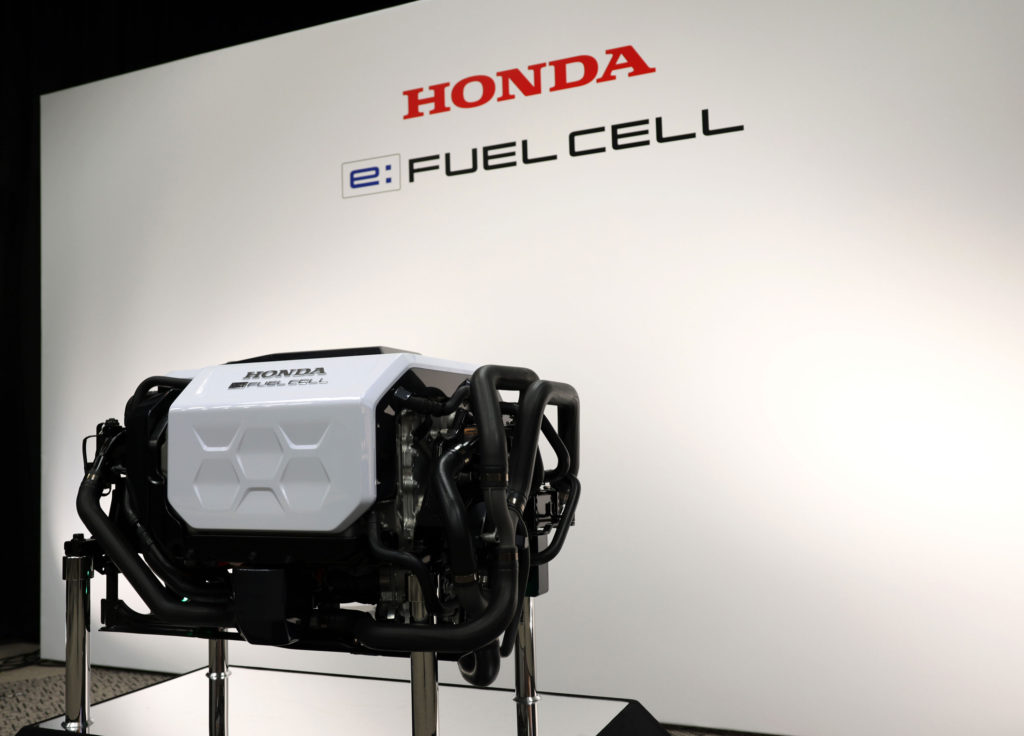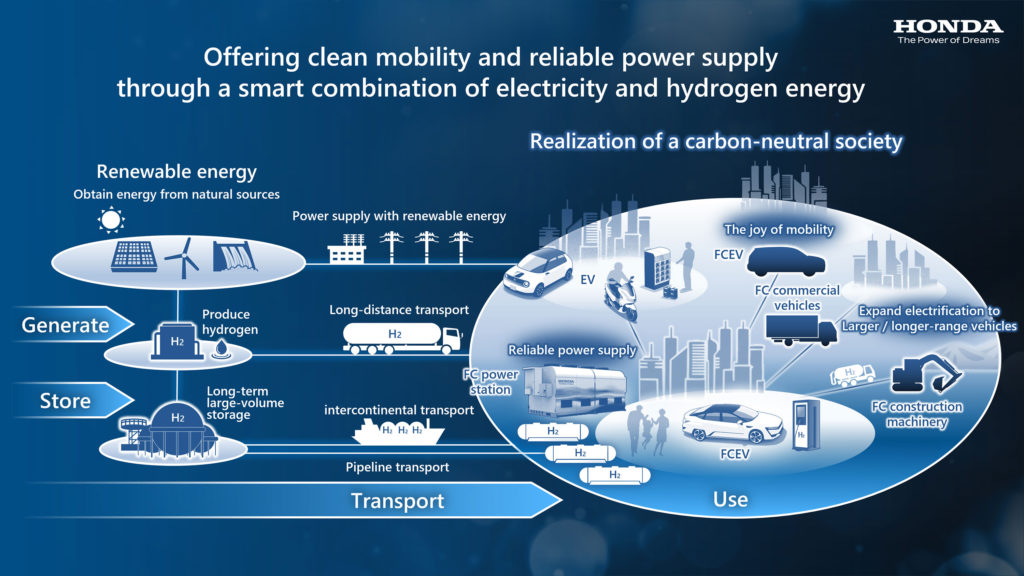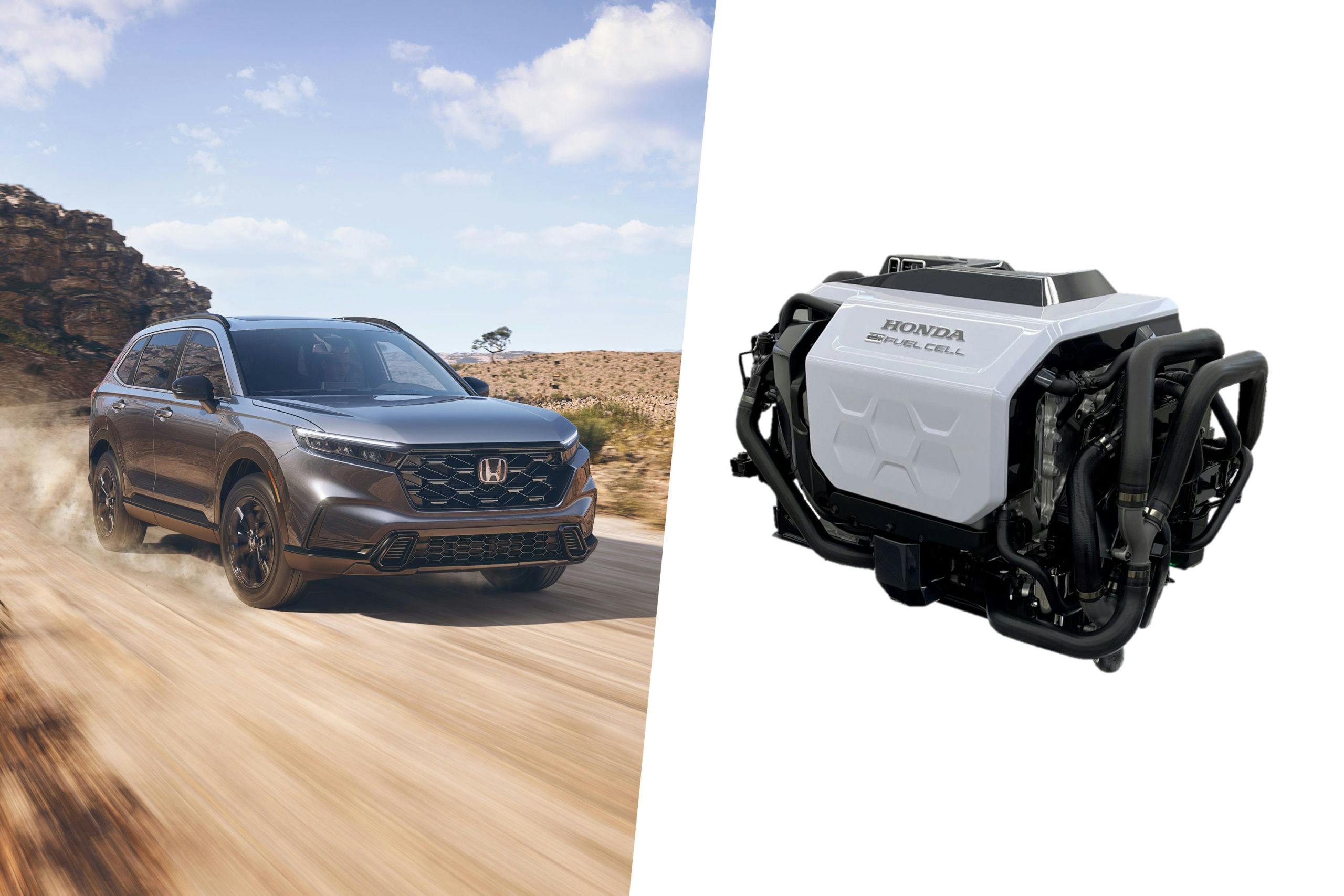Engineers at Honda are hard at work developing next-generation hydrogen fuel cells with dramatically increased longevity and significantly lower price tags. Helping transform this eco-friendly power source into a viable alternative to all-electric drivetrains, the Japanese automaker announced it’s building a new fuel cell-powered vehicle based on the popular CR-V SUV.
Details are scarce, but in a briefing with media, Ryan Harty, senior manager of CASE and Energy Business at American Honda said, “Production will begin in 2024 at the Performance Manufacturing Center near Marysville, Ohio.” This new fuel cell-equipped model is scheduled to go on sale in both North America and Japan next year.
SEE ALSO: GM secures domestic lithium for 1 million EVs per year
A huge competitive advantage for this yet-unnamed product is that in addition to a fuel cell powertrain, it will also have a battery pack and plug-in capability, so you can charge up at home or on the road. Given how scarce hydrogen fueling stations are in the US – they’re basically nonexistent outside California where they’re also as rare as hen’s teeth – this plug-in capability means you can drive far beyond a hydrogen stating and simply recharge as you would any other EV.

Further increasing the versatility of this vehicle, Harty said it will also support a power-export function, that is, bi-directional charging. This means the vehicle can basically function as a generator by back feeding electricity directly into your home’s wiring system during power outages. “We have not disclosed all of the technical considerations for that,” he said when pressed for details. “We’re looking forward to disclosing that in the future.”
Honda has been developing hydrogen fuel cells since the 1980s and the company has been working with GM on the technology since 2013. This partnership’s next-generation design promises to more than double the durability of the system used in the 2019 Clarity Fuel Cell vehicle while simultaneously reducing the cost to just one-third. After that, Honda projects it will once again double the longevity and cut the cost in half with its next-next-generation fuel cell system, though it’s unclear whether this design will also be co-developed with GM. Harty said they have not announced any details about that.
Hydrogen fuel cells are an excellent alternative to all-electric drivetrains. These systems scale much better than battery packs, making them superior for use in applications like over-the-road trucks and construction equipment, areas Harty said Honda is targeting. In partnership with Dongfeng in China, the company is already testing fuel cell drivetrains in commercial vehicles and Honda is set to do the same in Japan with Isuzu. Harty said they’re also actively seeking heavy truck partners in North America for additional testing.

Going forward, Honda is aiming to sell some 2,000 examples of its next-generation fuel cell power unit per year in the mid-2020s, growing that to about 60,000 annually in 2030. Later in the decade is when things are projected to really take off. The company expects to deliver a few hundred thousand examples per year toward the end of the 2030s, with many of those being sold in North America. “[Honda is a global company] but we do see the US as the predominant market for hydrogen fuel cells,” said Harty.
CHECK THIS OUT: 2022 BMW iX xDrive50 review: The future is now
But before fuel cells have any hope of catching on, the infrastructure has to be built out. Aside from limited availability, hydrogen is also expensive and if it’s not produced in an environmentally friendly way from green energy, it’s scarcely any better than fossil fuels. “We need to develop some new business models around hydrogen generation,” acknowledged Harty though he seems optimistic about the technology. “We think we can get to a very low-cost hydrogen product for our customers,” whether they’re everyday motorists looking for a family-friendly SUV, truckers or even construction companies.

